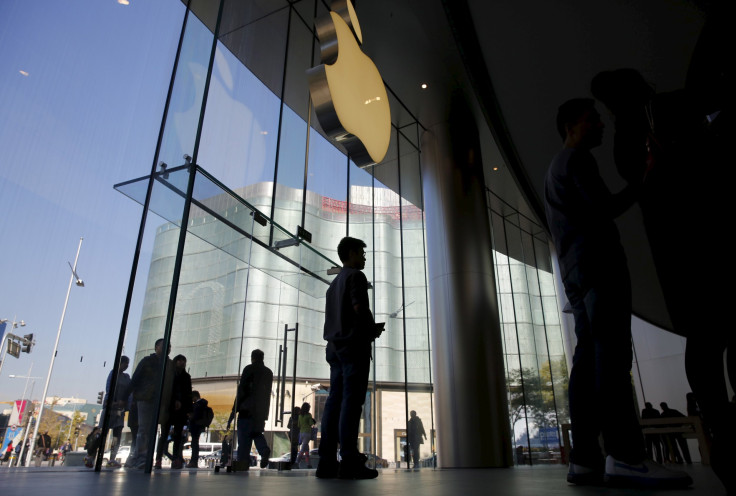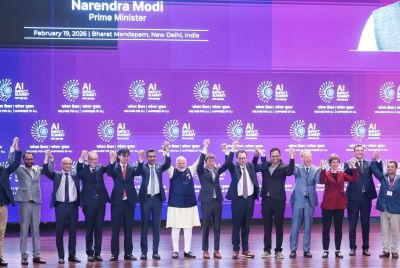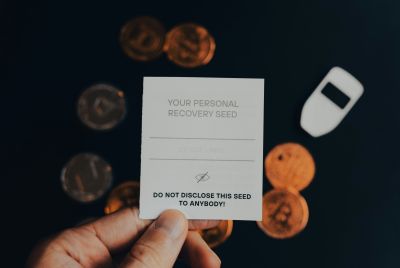Apple Inc. Wants To Be Your Bank, And The Big Banks Should Be Worried

Whether through its Apple Pay mobile wallet or a new, person-to-person payments network reportedly in the works, Apple wants to be at the center of consumers’ financial lives in the same way it has changed the way people communicate, listen to music and, if other ventures are successful, watch TV and even drive. Given Apple’s track record of disruption, the company’s plans could put the traditional financial services industry on the defensive.
The gadget maker is said to be in talks with several major banks to launch a personal payments service that would allow, say, friends to split a check or emigrants to send money back home via their iPhones. It would compete with existing services like Square, Android Pay or Venmo, which is operated by PayPal. PayPal has seen its share price tumble since reports about Apple’s initiative emerged.
The Wall Street Journal said that Apple may launch the venture in partnership with JPMorgan Chase, Capital One Financial Corp., Wells Fargo and U.S. Bancorp.
The service could be a boon for those financial institutions in the short term. Although they would have to cede a portion of so-called interchange fees to Apple, likely about 15 percent, they could make up the difference in volume if an Apple-branded service encourages a spike in electronic payments. But longer term, market watchers say, the banks risk becoming an anonymous transaction engine rather than the all-encompassing service providers that currently play a central role in consumers’ financial lives.
“Strictly from a transaction processing perspective, they’re going to get more transactions,” said Gartner analyst Penny Gillespie. “From the perspective of the relationship, the customer experience and who is managing it, it becomes more of a competitive situation.”
Apple has not confirmed that it plans to launch a person-to-person service, so the details, including how much customer data it would share with its banking partners, are unclear. It’s also not clear whether such a service would put Apple under the regulatory thumb of the Federal Deposit Insurance Corp. or other financial regulators – something CEO Tim Cook recently said he wants to avoid.
Ceding the payments industry to Apple, or to Venmo or other third parties, could hurt banks’ ability to diversify beyond core savings and lending functions and sell new products like investment instruments, mortgages and retirement planning. “As more and more consumers get hooked into applications, they are establishing more of their trust with these brands. That’s having a ripple effect when it comes to who takes care of their money,” said Safwan Zaheer, a digital payments expert with consulting firm Accenture.
Not that the big banks are hurting, for the moment. The industry posted a 7.3 percent year-over-year increase in profits in the third quarter – the biggest gain since 2009, according to the FDIC. But banking still faces a number of headwinds – including shrinking margins due to persistently low interest rates and increasing reserve requirements.
Margins could further erode if banks lose their direct connection to the consumer and have to share fees with partners. And Apple isn't the only threat. Many of the apps that power the so-called sharing economy, from Uber to Airbnb, automatically handle financial transactions. “You are one layer removed,” said Peter Olynick, Card and Payments Practice lead at Carlisle & Gallagher Consulting.
The question is whether Apple can make mobile, person-to-person payments mainstream if it launches a new service. Only 5 percent of consumers use Venmo to make payments to other individuals, according to a recent survey by Aite Group. Some 73 percent still use cash. The thinking is that if Apple can introduce an elegant, seamless payments service that is tightly integrated with the iPhone, mobile payments could take off. “Seamless matters if you want customers to change their behavior,” said Gartner’s Gillespie.
-- Additional reporting by Michael Learmonth
© Copyright IBTimes 2025. All rights reserved.






















